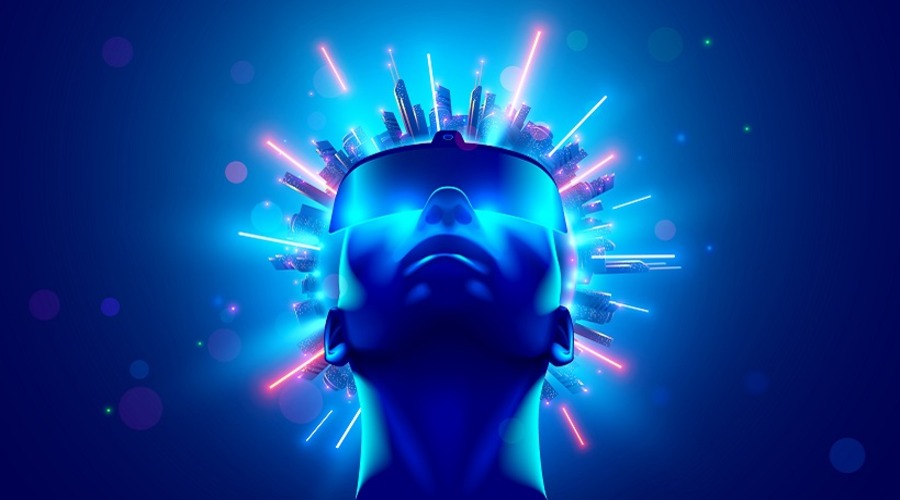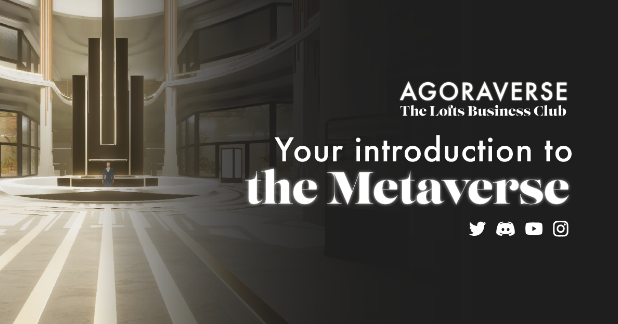The world of social media is ever-changing, and the latest buzzword in the digital world is the “Metaverse.” The Metaverse is not just a game or a virtual world, but it’s a new form of social media that has the potential to revolutionize the way we interact with each other online. In this article, we will explore what the Metaverse is, how it works, and its potential impact on social media.
What is the Metaverse?
The Metaverse is a term used to describe a collective virtual shared space that is created by the convergence of physical and virtual reality. It is an immersive and interactive 3D world where users can interact with each other in real-time, just like they do in the physical world. In the Metaverse, users can create their own avatars, visit virtual places, attend events, and engage in activities just like they would in real life.
How Does it Work?
The Metaverse is built on top of existing technologies like Virtual Reality (VR), Augmented Reality (AR), and the Internet of Things (IoT). These technologies work together to create a seamless and immersive experience for users. The Metaverse is not limited to a specific platform or device, and it can be accessed from anywhere using different devices like smartphones, computers, VR headsets, and other connected devices.
The Potential Impact on Social Media
The Metaverse has the potential to revolutionize the way we interact with each other online, and it could be the future of social media. Unlike traditional social media platforms, the Metaverse offers a more immersive and interactive experience for users. It enables users to create their own virtual identity, interact with other users in real time, and participate in virtual events and activities.
The Metaverse could also provide new opportunities for businesses to reach out to their customers in a more engaging and interactive way. Brands could create their own virtual spaces, where they can showcase their products and services and interact with their customers in a more personalized way. The Metaverse could also provide new opportunities for content creators to create immersive and interactive experiences for their audiences.
Challenges and Concerns
Despite the potential benefits of the Metaverse, there are also some challenges and concerns that need to be addressed. One of the main concerns is privacy and security. As the Metaverse is a shared virtual space, there is a risk of data breaches and cyberattacks. Another concern is the potential for addiction and over-dependence on virtual worlds.
Opportunities for Social Interaction
The Metaverse offers unique opportunities for social interaction that are not available in traditional social media platforms. Users can interact with each other in real-time, just like they do in the physical world. This can lead to more meaningful and authentic interactions, as users can express themselves in a more natural and intuitive way. In addition, the Metaverse enables users to connect with people from all over the world, breaking down geographical barriers and creating a more diverse and inclusive online community.
New Forms of Entertainment
The Metaverse also offers new forms of entertainment that are not available in traditional social media platforms. Users can attend virtual concerts, participate in virtual sports events, and explore virtual museums and galleries. This provides a more immersive and interactive experience for users and can also provide new opportunities for artists and performers to reach out to their audiences in a more engaging way.
Potential for Education and Learning
The Metaverse also has the potential to revolutionize education and learning. Virtual classrooms can be created where students can interact with each other and with their teachers in a more engaging and immersive way. This can lead to better retention of information and a more personalized learning experience. The Metaverse can also provide new opportunities for vocational training and professional development, as users can participate in virtual simulations and training exercises.
Impact on Traditional Social Media Platforms
The rise of the Metaverse could have a significant impact on traditional social media platforms like Facebook, Instagram, and Twitter. As users spend more time in the Metaverse, they may spend less time on traditional social media platforms. This could lead to a decline in advertising revenue for these platforms and a shift in the way businesses and marketers reach out to their customers. However, it’s important to note that the Metaverse is still in its early stages, and it’s too early to say if it will replace traditional social media platforms altogether.
The Future of the Metaverse
The Metaverse is still in its early stages, but it has the potential to revolutionize the way we interact with each other online. As technology continues to advance, the Metaverse could become more seamless and immersive, offering new opportunities for social interaction, entertainment, education, and business. However, it’s important to address the challenges and concerns surrounding the Metaverse, such as privacy, security, and addiction, to ensure that it remains a safe and beneficial platform for users.
Conclusion
The Metaverse is a new form of social media that offers unique opportunities for social interaction, entertainment, education, and business. It has the potential to revolutionize the way we interact with each other online, but it also poses challenges and concerns that need to be addressed. As technology continues to advance, the Metaverse will likely become more prevalent, and it’s important to keep an eye on its development and potential impact on traditional social media platforms.
FAQs
Q: What is the metaverse?
A: The metaverse is a virtual world where users can interact with each other in a 3D environment, using avatars to represent themselves. It is often compared to a combination of social media, gaming, and virtual reality.
Q: How is the metaverse different from traditional social media?
A: The metaverse offers a more immersive and interactive experience than traditional social media. Users can explore virtual worlds, attend events, and engage with others in real-time. It allows for a more personalized and engaging social experience.
Q: What are some examples of metaverse platforms?
A: Some popular examples of metaverse platforms include Second Life, Decentraland, and Roblox. These platforms allow users to create their own virtual worlds, participate in events, and interact with others.
Q: Can businesses use the metaverse for marketing and advertising?
A: Yes, businesses can use the metaverse for marketing and advertising. They can create their own virtual spaces, host events, and engage with users in the metaverse. The metaverse offers a unique opportunity for businesses to reach a highly engaged and targeted audience.
Q: What are the potential benefits and drawbacks of the metaverse as a form of social media?
A: The metaverse offers a more immersive and interactive social experience, but it also raises concerns about privacy and security. Users may also become addicted to the metaverse, leading to negative impacts on mental health and relationships. Additionally, there is a risk that the metaverse could reinforce existing social inequalities. However, the potential benefits of the metaverse include increased social connection, creativity, and new opportunities for businesses and individuals.




